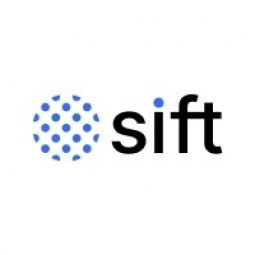Customer Company Size
Large Corporate
Country
- Worldwide
Product
- Sift Content Abuse Prevention
- Sift Digital Trust Platform
Tech Stack
- Machine Learning
Implementation Scale
- Enterprise-wide Deployment
Impact Metrics
- Productivity Improvements
- Customer Satisfaction
Technology Category
- Analytics & Modeling - Machine Learning
Applicable Industries
- E-Commerce
Applicable Functions
- Business Operation
Use Cases
- Fraud Detection
Services
- Data Science Services
About The Customer
Universe.com is one of the biggest marketplaces in the world, hosting a wide range of events. The platform has experienced rapid growth, expanding to over 3 million active users across the globe. However, with this growth came an increase in fraudulent listings and spambot attacks, threatening the integrity of their platform. The company's goal is to maintain platform integrity and customer trust while continuing to grow and expand into new markets. They aim to provide an abuse-free user experience and ensure that their hosts and users are happy and engaged. Universe.com is also looking to explore new opportunities globally while remaining a leader in the events marketplace.
The Challenge
Universe.com, a global events marketplace, was experiencing an increase in fraudulent listings and spambot attacks as it expanded to over 3 million active users worldwide. The volume of event listings, hosts, and users was increasing rapidly, escalating the risks and potential impact of spam, scams, and other fraudulent activity. The attacks were becoming more sophisticated and harder to address. A major client's event was attacked, which was a pivotal moment for Universe. They didn't want customers to hesitate to host major events for fear of attacks. The fraud team was constantly playing catch up. If a fraudulent event was posted or a spambot started messaging thousands of users, the team would only find out about it once it was too late. Each attack meant multiple developers would have to drop what they were working on to address the issue in time.
The Solution
Universe decided to partner with Sift to provide a holistic fraud and abuse solution. They chose Sift over other vendors due to the compelling testimonials from Sift’s customers and its global network of 6,000+ customers. Sift's Content Abuse Prevention and Digital Trust Platform were implemented to evaluate host and user behavior and posted content to ensure an abuse-free user experience. Sift's solution also helps Universe to detect bad users, stopping them before they can even post content. The onboarding process took only a week to get the model set up so most review could be automated. Sift's machine learning model allows Universe to be proactive in fighting spam, keeping up with the ever-evolving types of spam.
Operational Impact
Quantitative Benefit

Case Study missing?
Start adding your own!
Register with your work email and create a new case study profile for your business.
Related Case Studies.

Case Study
Digital Transformation of Atlanta Grout & Tile: An IoT Case Study
Atlanta Grout & Tile, a Tile, Stone & Grout restoration company based in Woodstock, Georgia, was facing challenges with its traditional business model. Despite steady growth over the years, the company was falling behind the web revolution and missing out on the opportunity to tap into a new consumer base. They were using independent software from different vendors for each of their department information and workforce management. This resulted in a lot of manual work on excel and the need to export/import data between different systems. This not only increased overhead costs but also slowed down their response to clients. The company also had to prepare numerous reports manually and lacked access to customer trends for effective business decision-making.

Case Study
IFFCO Boosts IT Performance and Innovates Agriculture with Oracle Cloud
Indian Farmers Fertiliser Cooperative Ltd. (IFFCO), the world’s largest manufacturer and marketer of fertilizers in the cooperative sector, was facing several challenges in its quest to innovate and improve the livelihood of farmers in India. The organization had recently launched a new product, nano urea, which brought new demands to IFFCO’s cloud computing needs. The organization needed a reliable cloud vendor to support the processes of 6–7 new manufacturing plants during the upcoming year, enhancing its production capability 300–350 million bottles of nano urea to meet increasing demand. IFFCO’s cloud adoption was driven by a need to innovate. The organization wanted capabilities for a dynamic business that can adapt to the changing needs of the market while growing fast. However, it was inhibited by rigid on-premises data center deployments and the overhead of maintaining legacy systems. IFFCO wanted to apply the elasticity and availability of cloud for improving overall performance of applications at lowest possible operational overhead. Lastly, IFFCO needed to provide the benefits of its technology to all its stakeholders, including employees, members, transporters, and farmers, some of whom have limited literacy. To accommodate all stakeholders, IFFCO wanted to add a voice interface to its applications.
Case Study
7-Eleven Philippines Enhances Customer Support with Freshdesk
7-Eleven Philippines, a pioneer of 24-hour convenience stores in the country, was facing challenges with its customer support system. The customer support was outsourced to an external vendor, which resulted in limited visibility into customer query patterns and performance metrics. The company had no transparency into the vendor's analytics and could not validate their reports. They also had no visibility into the volume of calls, number of abandoned calls, etc. due to the use of the vendor’s telephony solution. This lack of control and visibility into customer support led the team to decide to bring the entire function in-house. They began exploring helpdesk solutions that would enable them to build a strong in-house support team.

Case Study
Cloud4com: Delivering Efficient and Secure SAP HANA Cloud Services
Cloud4com, a leading provider of IT infrastructure and data center services, recognized the challenges and costs companies face when upgrading their on-premises infrastructure to meet the demands of SAP HANA in-memory technology. With the introduction of SAP HANA and SAP's decision to end support for all other databases from 2025, Cloud4com saw an opportunity to expand its services to a larger customer base. However, SAP HANA is a resource-intensive technology that requires companies to deploy powerful and costly hardware platforms. Businesses often overspecify the hardware, resulting in underutilization within the software's lifecycle. To capitalize on the opportunity presented by SAP HANA, Cloud4com aimed to create a cost-effective cloud platform for HANA and began working on obtaining the SAP Tailored Datacenter Integration (TDI) certification. A critical element was selecting the right operating system that would meet SAP’s standards and maximize the availability and performance of their customers’ SAP landscapes.
Case Study
BrewDog's Customer-Centric Approach in Times of Uncertainty
BrewDog, a Scottish-born craft beer business, faced a significant challenge during the COVID-19 pandemic. With their bars closed, the company saw a surge in online orders and customer inquiries. The customer service team, which handles all e-commerce customers and general brand-related queries, was overwhelmed with the sudden increase in activity. The team was dealing with up to 2000 tickets a day during the lockdown, a significant jump from the usual 150-200 tickets. The fast-paced nature of BrewDog's operations, with new projects and initiatives launching daily, further complicated the situation. The company's existing processes, which were fairly manual, were not equipped to handle this surge in volume. The challenge was to quickly adapt and streamline their customer service operations to continue providing excellent service during these uncertain times.

Case Study
Global Timeshare Company Accelerated Its Digital Marketing and E-commerce Engine
The client's go-to-market teams weren't accustomed to attracting new buyers in the digitally networked world. These prospects come from an evolving demographic — millennials and Gen Z who were increasingly adopting the new ways of evaluating options online and making reservations.There were three key challenges that the client was facing.Outdated and aging systems (legacy core)Inadequate web presence and e-Lack of predictive customer understanding and analytics







